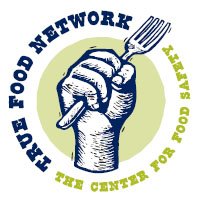 By now, few of us haven’t heard about the recent pet food recalls, and the tragic deaths of over 4,000 pets due to contaminated wheat products imported from China. But what many of us haven’t heard is that these contaminated ingredients have also made their way into the human food supply. We also haven’t heard much about how these contaminated ingredients slipped into the U.S., what this says about the safety and security of our food supply, or the efficacy of continuing to put the politics of international trade and its ensuing corporate profits before the health and safety of the American public.
By now, few of us haven’t heard about the recent pet food recalls, and the tragic deaths of over 4,000 pets due to contaminated wheat products imported from China. But what many of us haven’t heard is that these contaminated ingredients have also made their way into the human food supply. We also haven’t heard much about how these contaminated ingredients slipped into the U.S., what this says about the safety and security of our food supply, or the efficacy of continuing to put the politics of international trade and its ensuing corporate profits before the health and safety of the American public.First we were told that none of the adulterated wheat gluten or rice protein had made its way into the human food supply, and then we were informed that more than 6,000 hogs had eaten contaminated “salvaged” pet food, and were to be quarantined and kept off the market. Next it was chickens - 3 million of them, slaughtered, butchered and presumably eaten by unsuspecting consumers. Then 20 million more chickens, and then another 50,000 hogs. Then we found out that melamine-contaminated feed was also used at dozens of fish farms and hatcheries in the U.S. and Canada. U.S. officials then announced that the purported Chinese wheat gluten and rice protein concentrate, were actually just wheat flour.
Food causes an estimated 76 million illnesses and 5,000 deaths in the U.S. every year. While imports of food soared to more than 9 million shipments last year, the frightening truth is that FDA inspects less than 1% of these imports. If pets hadn’t started falling ill and dying, chances are they never would have caught the adulterated food. In a typical look-only-where-the-light-is reaction, the agency is now focusing almost entirely on inspecting imports of ingredients like wheat gluten, but the import of processed foods, meat and farmed seafood products from China has continued virtually unchecked, despite the fact that China is a major U.S. supplier of farm-raised shrimp, tilapia, catfish and other fish that more than likely received the same contaminated feed.
So why don’t we simply ban imports of food from China and other countries with food safety standards more lax than ours? And why does the U.S., the world’s largest exporter of wheat, need to import wheat products from China anyway? Importing products from countries like China, where food safety standards, employee wages, and other production costs are lower than those in the U.S. translates into massive profits for corporations. Stopping imports from an important international trade partner like China would spell disaster for big agribusiness in the U.S. In the end, it is American consumers, farmers and ranchers, and “outsourced” workers who pay the price.
With the amount of food coming into, and produced in, the country one would think FDA would be inspecting, testing and recalling contaminated products routinely, but the agency is woefully understaffed and underfunded, and often lacks the authority to do their job effectively. Even former FDA Commissioner Kessler warned at a recent Congressional hearing, "Our food-safety system in this country is broken." FDA actually developed an import-safety plan five years ago that went nowhere, and has asked for the authority to block imports from countries connected to contamination incidents until they put standards comparable to our own in place. But lawmakers wouldn’t pass it, likely because US food companies spend over a billion dollars a year lobbying against such regulations. But with food contamination incidents steadily rising, the tide seems to be turning in the halls of Congress.
This year the Government Accountability Office (GAO), the independent, investigative arm of Congress, added the country’s food safety system to its list of “high risk” operations, and recommended that all food safety matters be regulated by one agency. Representative Rosa DeLauro (D-CT), recently introduced a bill in the House to do just that, and Senators Durbin (D-IL) and Schumer (D-NY) have introduced a companion bill in the Senate.
The “Food Safety Act” would create an independent “Food Safety Administration” to oversee the nation’s food supply by combining portions of the 12 agencies that now oversee some part of food system. While talks of an independent, single food safety agency have gone on for nearly ten years, it seems at long last it may finally get some traction. Now if we could only ensure that said "Food Safety Administration" would not be in the pocket of Corporate America, we might have something.


No comments:
Post a Comment